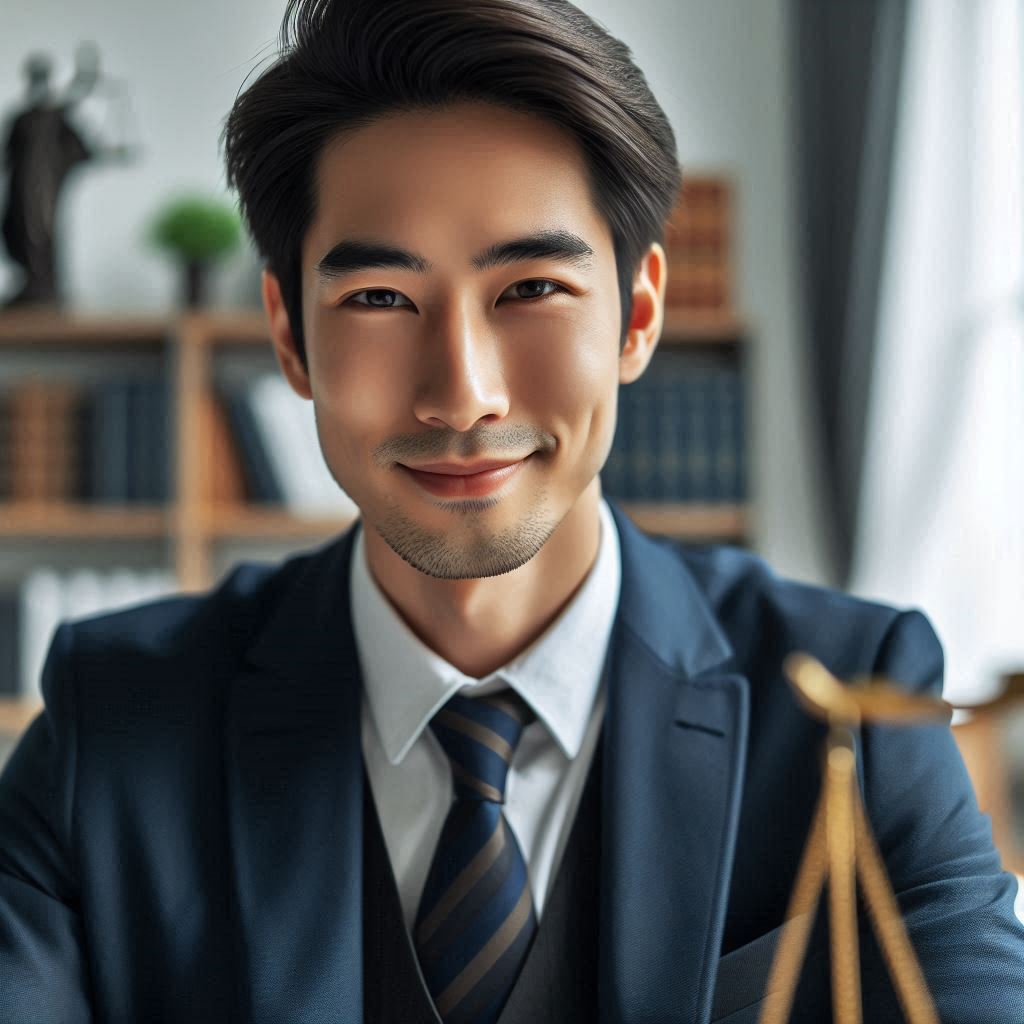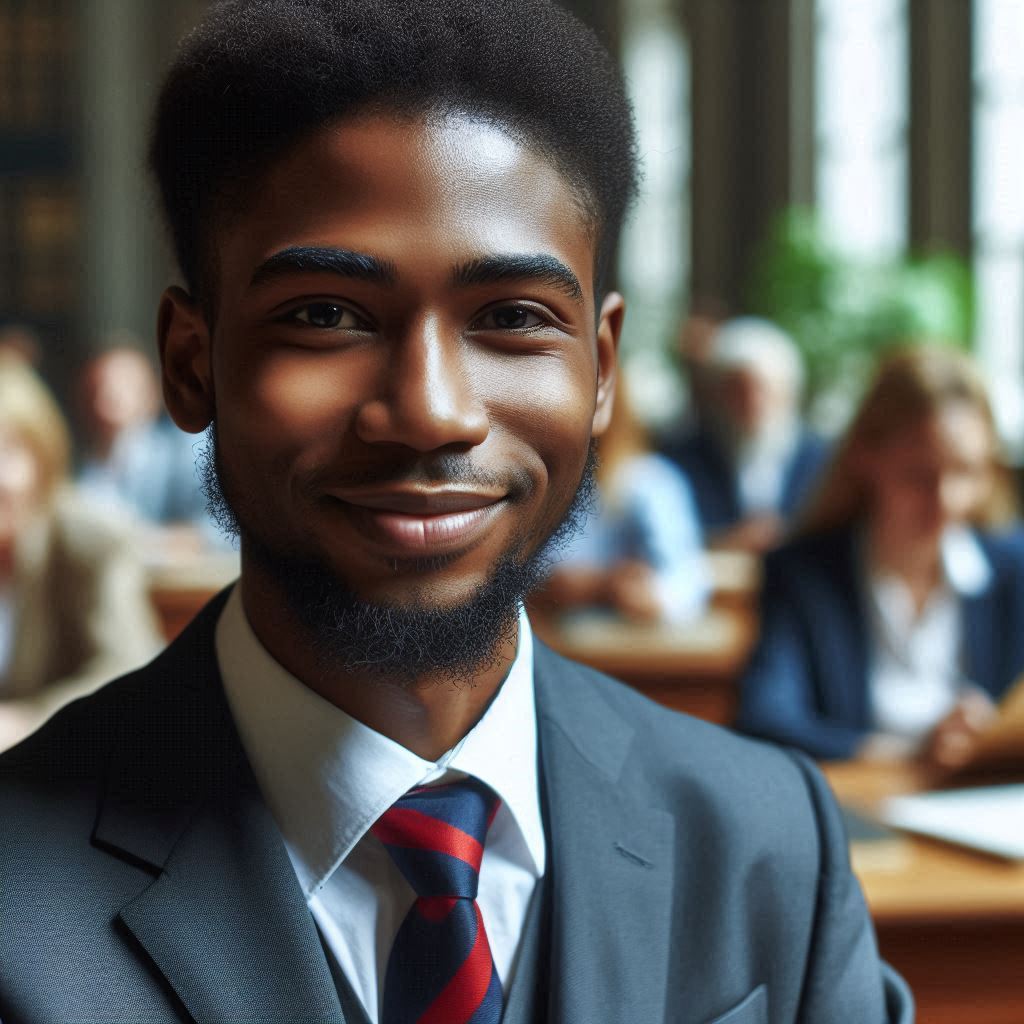Introduction
Human rights lawyers play a crucial role in advocating for change by defending individuals’ rights and freedoms.
They focus on upholding justice, equality, and dignity for all people. These lawyers work tirelessly to challenge laws and policies that infringe on basic human rights.
They represent clients in cases involving discrimination, abuse, and other violations.
By doing so, they seek to ensure that everyone receives fair treatment under the law.
Human rights lawyers often collaborate with non-governmental organizations (NGOs) and international bodies to influence policy change.
They use legal tools to hold governments and institutions accountable for their actions.
Through litigation, advocacy, and education, they raise awareness about human rights issues.
This helps to bring about positive change in society and influence public opinion.
The importance of human rights law lies in its ability to protect individuals from abuse and discrimination.
It provides a framework for addressing violations and seeking justice.
Human rights law ensures that everyone enjoys fundamental freedoms and equal opportunities.
It empowers individuals to challenge unjust practices and seek redress for wrongs suffered.
In essence, human rights lawyers are vital in advocating for change and promoting justice. Their work is essential for protecting individuals’ rights and freedoms.
By holding perpetrators accountable, they strive to create a more just and equitable world.
Their efforts contribute to building societies where everyone can live with dignity and respect.
Through their dedication, human rights lawyers continue to make a significant impact in advancing human rights globally.
The role of human rights lawyers in advocating for change
Legal Representation for Marginalized Groups
Human rights lawyers play a crucial role in advocating for change by providing legal representation for marginalized groups who often face discrimination and violations of their fundamental rights.
These lawyers take on cases involving vulnerable populations such as refugees, immigrants, indigenous peoples, and minorities who are often marginalized and disenfranchised.
By representing these groups in court, human rights lawyers seek to hold perpetrators accountable and secure justice for those who have been wronged.
Filing Lawsuits Against Human Rights Violations
One of the key ways human rights lawyers advocate for change is by filing lawsuits against perpetrators of human rights violations.
Transform Your Career Today
Unlock a personalized career strategy that drives real results. Get tailored advice and a roadmap designed just for you.
Start NowThese legal actions serve to bring attention to injustices, seek reparations for victims, and hold accountable those responsible for committing human rights abuses.
By taking legal action, human rights lawyers aim to create a deterrent effect, sending a clear message that violations will not be tolerated and that justice will be pursued through all available legal avenues.
Lobbying for Policy Change
In addition to legal representation and filing lawsuits, human rights lawyers also advocate for change by lobbying for policy reform at the local, national, and international levels.
By engaging with lawmakers, government officials, and international organizations, these lawyers work to influence legislation, regulations, and treaties to better protect human rights and promote accountability for violations.
Through strategic advocacy efforts, human rights lawyers aim to create systemic change that will prevent future abuses and promote a culture of respect for human rights.
Read: Technology and Its Role in Human Rights Law
Challenges Faced by Human Rights Lawyers in their Advocacy Work
Human rights lawyers play a crucial role in advocating for change and upholding human rights around the world.
However, they face numerous challenges in their work that can hinder their efforts and put them at risk. Some of the main challenges include:
Lack of Resources
One of the most significant challenges that human rights lawyers face is the lack of resources to effectively carry out their advocacy work.
This includes financial constraints, limited access to research materials, and insufficient support staff.
Without adequate resources, human rights lawyers may struggle to take on cases, conduct investigations, and provide legal representation to those in need.
Political Pushback
Human rights lawyers often face political pushback from governments and other powerful actors who seek to silence dissent and suppress advocacy efforts.
This can take many forms, including legal harassment, surveillance, restrictions on freedom of speech, and smear campaigns.
Political pushback can make it challenging for human rights lawyers to speak out against injustice and hold perpetrators accountable.
Threats to Personal Safety
Another significant challenge for human rights lawyers is the threat to their personal safety.
They often face intimidation, harassment, physical violence, and even death threats as a result of their work.
This not only puts their own lives at risk but also creates a chilling effect that deters other lawyers from taking on human rights cases.
Despite these risks, many human rights lawyers continue to bravely advocate for change and seek justice for those who have been wronged.
Read: Human Rights Law Firms: What to Expect
Showcase Your Business Today
Reach thousands of readers actively exploring professional services. Publish your business profile and grow your audience now.
Publish NowStrategies used by human rights lawyers to overcome challenges
Human rights lawyers face numerous challenges in their advocacy work, but they employ various strategies to overcome these obstacles and effect change.
Building coalitions with other organizations
- Collaboration is key for human rights lawyers to amplify their impact.
- By joining forces with other like-minded organizations, they can pool resources and expertise.
- Building coalitions allows for a more unified front in advocating for human rights issues.
- Working together with diverse groups brings different perspectives to the table.
- Collective action often yields greater results than individual efforts.
International advocacy
- Human rights lawyers often work on cases that have international implications.
- Engaging with international bodies such as the United Nations can bring attention to human rights violations.
- Advocacy at the global level can pressure governments to comply with international human rights standards.
- Utilizing international treaties and conventions as leverage in legal arguments.
- Seeking redress through international courts when domestic remedies are inadequate.
Public awareness campaigns
- Raising public awareness is crucial in gaining support for human rights causes.
- Human rights lawyers engage in media outreach to educate the public about violations.
- Utilizing social media and online platforms to reach a wider audience.
- Organizing events, protests, and rallies to draw attention to specific human rights issues.
- Empowering affected communities to share their stories and advocate for their rights.
In fact, human rights lawyers employ a combination of strategies such as building coalitions, engaging in international advocacy, and launching public awareness campaigns to advance their cause and bring about positive change in the realm of human rights.
These approaches help them navigate the challenges they face and make meaningful progress in their efforts to uphold justice and dignity for all.
Read: How to Find a Reputable Human Rights Lawyer

Impact of human rights lawyers’ advocacy work
In advocating for change, human rights lawyers play a crucial role in shaping policies and setting legal precedents that ultimately lead to improved protection of human rights.
Policy Changes
- Human rights lawyers analyze existing policies to identify gaps and areas for improvement.
- They propose changes to legislation to align with international human rights standards.
- Advocacy efforts include lobbying government officials and lawmakers to implement policy reforms.
- Through strategic litigation, lawyers challenge discriminatory laws and advocate for their repeal or amendment.
- Successful advocacy results in the development of new policies that uphold human rights principles.
Legal Precedents Set
- Human rights lawyers argue cases before courts to establish legal precedents that protect human rights.
- They interpret laws and treaties to advance human rights claims and expand legal protections.
- Landmark rulings by courts based on arguments presented by lawyers contribute to jurisprudence.
- These precedents guide future cases and influence decision-making on human rights issues.
- Lawyers use precedent-setting cases to advocate for systemic changes in legal frameworks.
Improved Protection of Human Rights
- Human rights lawyers work to ensure individuals’ fundamental rights and freedoms are respected and upheld.
- Advocacy efforts lead to increased awareness of human rights violations and the need for justice.
- Lawyers represent vulnerable populations to secure their rights and access to justice.
- Collaboration with human rights organizations strengthens advocacy campaigns and impact.
- Overall, the work of human rights lawyers contributes to a more just and equitable society.
Read: Landmark Cases in Human Rights Law History
Explore Further: Forensic Accountants in Corporate Investigations
Explore Further: Legal Mediation: A Growing Field in Law
Success stories of human rights lawyers
Human rights lawyers play a crucial role in advocating for change and ensuring justice for marginalized communities.
Through their dedication and expertise, they have been able to achieve remarkable success stories that have had a lasting impact on society.
Landmark cases
Human rights lawyers have been involved in numerous landmark cases that have set important legal precedents and advanced the cause of justice.
For example, in the case of Brown v. Board of Education, human rights lawyers successfully argued that racial segregation in schools was unconstitutional, leading to the desegregation of schools across the United States.
Legislative victories
Human rights lawyers have also been instrumental in advocating for legislative changes that protect the rights of individuals and promote equality.
For instance, in South Africa, human rights lawyers played a key role in drafting the Constitution of 1996, which enshrined the rights of all citizens and laid the foundation for a more just and equitable society.
Positive changes in society
Through their tireless advocacy and legal expertise, human rights lawyers have been able to bring about positive changes in society.
For example, in countries like Argentina and Chile, human rights lawyers have worked to hold perpetrators of human rights abuses accountable and seek justice for victims of state repression.
In short, human rights lawyers have made significant contributions to the advancement of human rights and social justice.
Their success stories in landmark cases, legislative victories, and positive changes in society serve as a testament to their dedication and commitment to upholding the rights of all individuals.
Gain More Insights: Prosecutor’s Guide to Effective Courtroom Presentation
The future of human rights lawyering
Human rights lawyers play a crucial role in advocating for justice and equality around the world.
As we look towards the future, it’s important to consider how human rights lawyering will continue to evolve.
- Increased focus on technology and its impact on human rights
- Collaboration across borders to address global human rights issues
- Adapting to new challenges, such as climate change and migration
Emerging issues to address
Human rights lawyers are faced with a range of complex and pressing issues that require attention and action.
- Protecting the rights of marginalized and vulnerable populations
- Addressing systemic discrimination and bias in legal systems
- Fighting against surveillance and privacy violations
Continued need for advocacy work
Despite progress in some areas, there is still much work to be done to ensure the protection of human rights for all.
Human rights lawyers must continue to be at the forefront of advocating for change and holding governments and institutions accountable.
- Advocating for legislative reforms to strengthen human rights protections
- Providing legal representation for those whose rights have been violated
- Raising awareness about human rights issues through education and activism
Importance of supporting human rights lawyers
Supporting human rights lawyers is essential to their ability to effectively advocate for change and uphold justice.
There are several ways individuals and organizations can support human rights lawyers in their important work.
- Providing pro bono legal assistance to human rights cases
- Funding legal aid programs for marginalized communities
- Advocating for policies that protect and empower human rights defenders
Conclusion
Human rights lawyers play a crucial role in advocating for change by representing marginalized individuals and groups.
They use legal mechanisms to hold governments and institutions accountable for human rights violations.
By bringing cases to national and international courts, they seek justice and reparations for victims of human rights abuses.
Human rights lawyers also engage in legislative advocacy to push for laws that protect and promote human rights.
Their work is essential in promoting a culture of human rights and ensuring that all individuals are treated with dignity and respect.
Human rights lawyers advocate for change by representing marginalized groups, using legal mechanisms to hold violators accountable, and pushing for legislative reform.
We can support human rights advocacy efforts by staying informed, raising awareness, and standing in solidarity with those who are fighting for justice and equality.
By supporting human rights lawyers and organizations, we can contribute to a more just and equitable society for all.
Let’s join hands with human rights advocates to create a world where human rights are respected and protected for everyone.
[E-Books for Sale]
The Big Book of 500 High-Paying Jobs in America: Unlock Your Earning Potential
$19.99 • 500 High-Paying Jobs • 330 pages
Explore 500 high-paying jobs in America and learn how to boost your career, earn more, and achieve success!
See All 500 High-Paying Jobs of this E-Book
1001 Professions Without a Degree: High-Paying American Jobs You Can Start Now
$19.99 • 1001 Professions Without a Degree • 174 pages
Discover 1001 high-paying jobs without a degree! Unlock career tips, skills, and success strategies for just $19.99!




